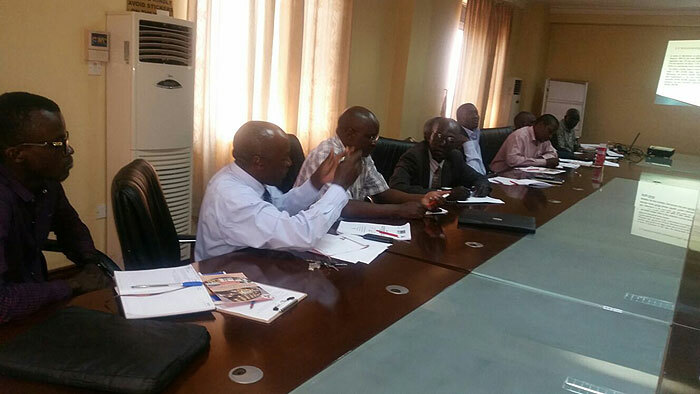'Youth must change attitude towards work'
“We do not know what to do, but our youths must change their negative attitude towards work.”
KAMPALA - Participants at a validation workshop have decried the negative attitude that employed Ugandan youths have towards work.
As many as 50 people complained that much as several youth lack skills, they do report late for work or leave their work stations earlier than they should.
The influence of social media was also at the heart of the discussion with some participants saying young people usually spend more time on social media than on the job.
"Youths are on [messaging app] WhatsApp 24/7," said Loy K. Mulwezi, the BTVET assistant commissioner for the ministry of education.
"We do not know what to do, but our youths must change their negative attitude towards work."
She said part of the problem is Uganda's education curriculum which trains students to pursue mostly white-collar jobs instead of training job creators.
Mulwezi added that many young people shun agriculture, calling it dirty, yet it presents several employment opportunities.

The workshop held at Hotel Triangle in Kampala was facilitated by Prof. Will Kaberuka and Edward Mwesigwa of Africa Tech consultants.
A study on the Ugandan job situation as regards the youth was released during the meeting.
The Africa Tech consultants were commissioned by Ford Foundation in collaboration with the Institute of International Education to research on the sectors of the Ugandan economy that are likely to offer job opportunities to the youth completing secondary and post -secondary education.
On his part, Prof. Kaberuka said in the next 10-20- years youths can find employment in the agricultural sector both on the farm and off-farm in the agriculture-related trade chain.
Meanwhile, Capt. Esau Tisasira, who is a farmer and a parent, said some youth want to get rich so fast and take too much risk in corruption and mismanagement cases in public offices instead of building careers and offering the best services to the public.
He said many shun vocational-related jobs and farming yet those are the enterprises that offer jobs on the market and are crucial in growing the economy.
Tisasira said he tried to employ his son on his farm but the young man declined saying he wanted to work outside the home working environment in orderto explore.
Edward Mwesigwa said they recommended that the Ugandan education system be charged so that it emphasizes equipping learners with vocational skills as compared to theoretical courses that are taught in most institutions.
Mwesigwa is an agricultural economist.

Dr. Susan Watundu, a senior lecturer at Makerere Business School (MUBS), chaired the session and said youths have to be served by government since several jobless ones are desperate.
"These youths who risk by carrying piglets to the Ugandan Parliament as they demonstrate high poverty levels and unemployment have to be well planned for with good policies and strategies," she said.
The lecturer added that government should prioritize youth skills development to reduce unemployment and poverty levels.
Government was asked to improve benefits of workers by putting a living wage to stop high labour turnover.
It was also suggested that the youth livelihood project targets youths who are already engaged in business instead of funding those who have no enterprises.
While closing the workshop, Godwin Kakama, the commissioner of the ministry of finance, called on the government to coordinate well its poverty eradication programs and asked the National Planning Authority to be smarter in planning for the needs of the people and to coordinate with all stakeholders.
During the study, all regions of the country were visited, covering the districts of Kampala, Mukono, Wakiso, Kabarole, Lira, Mbarara, Arua and Jinja.
The research that started in July involved interfacing with district officials, employers, employees and government ministries and bodies.